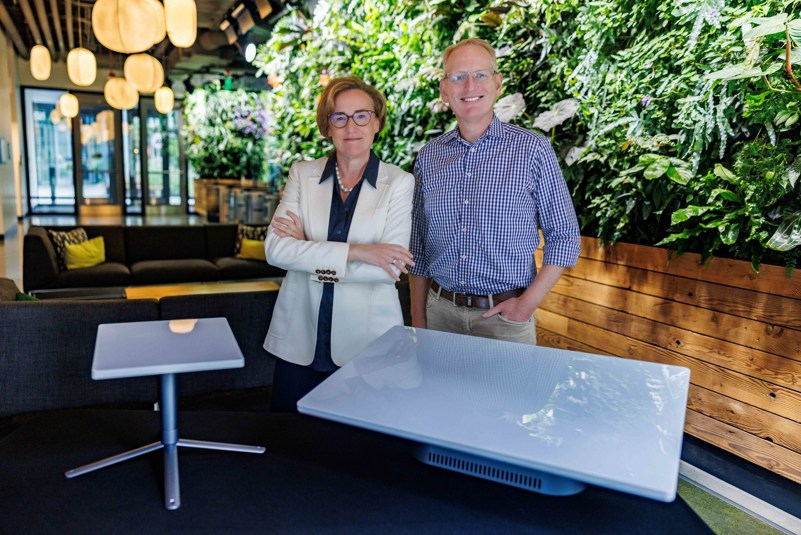Amazon's LEO communications initiative, known as Project Kuiper, will form a strategic partnership with the phone company to extend the reach of 4G/5G services to more of their customers in Europe and Africa.
Vodafone and its South African subsidiary Vodacom plan to use Project Kuiper's high-bandwidth, low-latency satellite network to bring 4G/5G connectivity to “areas that may otherwise be challenging and prohibitively expensive to serve via traditional fibre or microwave solutions.”
Margherita Della Valle, Vodafone Group chief executive, said that the collaboration with Amazon will provide mobile connectivity to many of the estimated 40 percent of the global population without internet access, “supporting remote communities, their schools and businesses, the emergency services, and disaster relief.”

Margherita Della Valle, Vodafone Group Chief Executive, and Amazon's Dave Limp stand behind customer terminal antennas used to send and receive data to and from Project Kuiper satellites. Picture: Vodafone
Della Valle added: “These connections will be complemented further through our own work on direct-to-smartphone satellite services."
Vodafone plans to begin deploying services in Africa and Europe as soon as Amazon's production satellites come online.
Amazon is currently preparing for tests of its prototype satellites in the coming months with production satellites expected to be deployed in 2024. Amazon expects to begin beta testing Project Kuiper services with select customers by the end of 2024, the company said.
Dave Limp, Amazon's senior vice president for devices and services, said: "Teaming with a leading international service provider like Vodafone allows us to make a bigger impact faster in closing the digital divide in Europe and Africa.
“Together we'll explore how we can help our customers get the most value from expanded connectivity, particularly in areas like residential broadband, agriculture, education, healthcare, transportation, and financial services."

